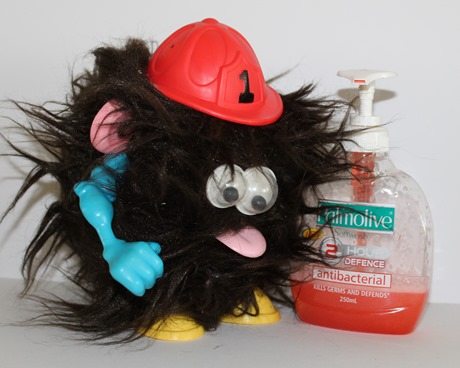Originally posted on December 10, 2014 @ 3:13 PM
The Unconscious and the Soap Dispenser
 I just came from a “Thinking Group” meeting where the topic of conversation was around conscious and unconscious thinking and about how our unconscious takes care of many of our decisions as we go about our day.
I just came from a “Thinking Group” meeting where the topic of conversation was around conscious and unconscious thinking and about how our unconscious takes care of many of our decisions as we go about our day.
In particular we talked about how when incidents happen, quite often the person involved will claim that they weren’t thinking. Well sometimes they get in first, before they are accused of “not thinking”; which as we know leads along the accuse, blame, counter accuse and counter blame route.
The usual course of action from there is, yep, you guessed it, another system review and training program; more control and compliance interventions, all preceding the next event where someone makes another “not thinking” error.
As the conversation flowed it turned to the questions “so how do we work around this”? And “how do we prevent these non-thinking errors?”
We agreed that people are human and as such they are fallible and make mistakes. The other thing we agreed upon was that generally, in the work sense, people don’t deliberately have incidents and certainly don’t deliberately injure themselves.
I know that through my almost 30 years of working in the “people well-being” game (I don’t like the safety word) and after investigating probably hundreds of incidents, I can’t recall many, if any, where people deliberately went out of their way to injure themselves. People’s motivation, in the conduct of their work, is most likely to be positive as they try to do their best.
So what about this “non-thinking” component to incidents?
We went back to our theme of conscious and non-conscious thinking and talked about how it impacts on behaviours and decision making of people.
I introduced the Group to the little experiment I have been conducting on myself. You see in our on-suite bathroom we have a liquid soap dispenser. You know the type, they come initially with their own pump, kindly supplied by the marketing people, to “help you” dispense the “right” amount of soap for your needs. Now we all know that the volume from the little pump is set such that you get far more soap than is generally needed from one pump, the dispenser empties, and you buy a refill. It is all about allowing them to get more of your money into their pockets.
So what does this have to do with unconscious thinking?
Well for years I have known about this trick to get more money from me by the soap dispenser people; and do you know what? I have been helping them by double pumping the little pump; thereby halving the time it takes to need a refill and doubling our expenditure on liquid soap. I decided a couple of months ago to take a stand. I was going to single pump.
So now, for the past couple of months, even though I have been consciously trying to re-train myself to single pump, I regret to have to report that I have essentially failed. Despite my social psychological studies with Dr Rob Long, and my early learning about conscious and unconscious decision making, and my clear and deliberate intention to only single pump, I estimate I am only scoring a miserable 50% of single pumps.
The thing is that I have been double pumping for so long that it has become a habit. And what do we know about habits?
Yep, you guessed it; habits are managed by our unconscious. More often than not I am not concentrating fully when I go to wash my hands. You see, I have been doing it for so long now that I wash my hands in auto-pilot mode. My mind is on other things and the thing that I am deliberately trying to do (not have a soap wastage incident) is smothered by my habit, my unconscious acting on automatic.
Does this sound familiar? Does this sound a bit like the person who was “not thinking” when their incident occurred?
The funny thing is that in my efforts to change my unconscious, I am imposing conscious remedies. I understand that my unconscious works so much faster than my conscious and that by the time I have realised (consciously) that I have double pumped, it is too late to control and the “incident” has occurred – wasted soap.
I have two options it seems to me.
- I can have a toolbox talk and tell myself to “stop it” to “stop wasting soap” (it’s what we do at work) in an effort to convince my unconscious to behave and to learn to not waste soap. And incidentally, until that magic day arrives, suffer the by-product of more wasted soap, and the trade-off of being a miserable failure (blame like we do at work) when I can’t control a simple soap dispenser.
-
Or, I can use my unconscious habit to somehow try and interrupt my unconscious “non-thinking” and get me into a conscious state to help develop a new habit.
That sounds very complicated I hear you say. Well, what if I could introduce a trigger to get me out of my unconscious?
What if I moved the soap dispenser? (thanks Leighton for that idea) Now when I go to double pump, and find that dispenser is not where it has been for years, my unconscious “spell”, my habit, may be broken enough that I will be reminded to only single pump.
It’s worth a try I imagine. Now, back to that “un thinking’ person at work…



Do you have any thoughts? Please share them below